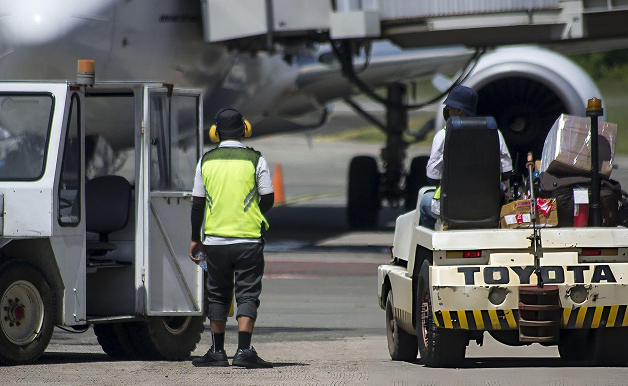
- 10th November 2025
Challenges and Opportunities in the Aviation Industry:
Navigating the Future of Air Travel and Ground Handling Services
The aviation industry stands as one of the most dynamic and globally connected sectors in the world. From commercial airlines and private charters to ground handling services and aircraft maintenance, every segment of aviation continues to evolve in response to new challenges and opportunities.
At NBJ VIP Ground Handling Ltd., we understand that the success of air operations depends not only on efficient air traffic but also on the quality of ground support, compliance, and customer experience. In this article, we explore the major challenges facing the aviation industry today and the exciting opportunities shaping its future.
1. Global Challenges Impacting the Aviation Industry
- Rising Operational Costs: Fuel price fluctuations, labour shortages, and maintenance expenses remain major cost drivers for airlines and service providers alike. For ground handling companies, maintaining service efficiency while minimising costs requires innovation and strategic partnerships.
- Sustainability and Environmental Regulations: With global attention shifting toward carbon neutrality, the aviation industry faces mounting pressure to reduce emissions and adopt eco-friendly practices. Airlines and ground handling operators are investing in electric ground support equipment (GSE), sustainable aviation fuels (SAF), and optimized logistics to align with global environmental goals.
- Technology Integration and Cybersecurity: As digital transformation accelerates, aviation stakeholders are increasingly dependent on data-driven systems, AI, and automation. However, this digital reliance introduces cybersecurity vulnerabilities, making data protection and IT infrastructure resilience top priorities for all aviation service providers.
- Workforce Shortages and Training Gaps: The demand for skilled aviation professionals continues to outpace supply. Pilots, engineers, and certified ground handling staff are in short supply globally. Addressing this challenge requires investment in training, continuous professional development, and global workforce collaboration.
- Regulatory Compliance and Safety Standards: Strict international aviation regulations ensure safety and quality, but they also require constant updates, certifications, and audits. For companies like NBJ VIP Ground Handling Ltd., maintaining compliance with ICAO, IATA, and local authorities is essential for seamless operations and client trust.
2. Emerging Opportunities Transforming the Industry
- Digital Transformation and Smart Airports: The aviation sector is rapidly adopting smart technologies, from automated check-ins and biometric identification to real-time baggage tracking. Ground handling services are also benefiting from digital scheduling, predictive maintenance tools, and IoT-driven equipment monitoring, enabling smoother and faster turnarounds.
- Expansion of Private and Business Aviation: Post-pandemic, private and charter flight demand has surged, offering new growth avenues for aviation support companies. Personalised, on-demand services, including VIP ground handling, crew support, and aircraft clearance, are becoming increasingly valuable for clients seeking efficiency and discretion.
- Growth of Emerging Markets: Regions such as Africa, the Middle East, and Asia are witnessing rapid aviation expansion driven by economic growth and tourism. This opens doors for new airports, increased flight connectivity, and partnerships between local service providers and global operators.
- Sustainability as a Competitive Edge: Rather than seeing sustainability as a regulatory burden, many forward-thinking companies are leveraging it as a brand differentiator. The adoption of green ground support vehicles, paperless operations, and carbon offset programs are becoming integral to modern aviation excellence.
- Collaboration and Innovation Across the Supply Chain: Aviation thrives on partnerships between airlines, airports, and service providers. Collaborative innovation, data sharing, and integrated service delivery are creating new efficiencies that enhance safety, reduce costs, and improve passenger experiences.

3. The Way Forward: Adapting to a Changing Aviation Landscape
For industry players, the future lies in adaptability, technology adoption, and service excellence. Companies that embrace innovation, invest in people, and commit to sustainable operations will continue to lead the transformation of air travel and ground handling.
At NBJ VIP Ground Handling Ltd., we are proud to be part of this evolution, offering tailored aviation support services such as:
- Aircraft Landing Permits & Clearances
- Worldwide Ground Handling & Fueling Services
- Crew Hotel Booking & Transportation
- Aircraft Charter & Brokerage
- 24/7 Global Flight Support
Our mission is to ensure smooth, secure, and seamless flight operations worldwide, enabling our clients to focus on what matters most – reaching their destinations safely and efficiently.
Conclusion
The challenges and opportunities in the aviation industry are closely intertwined. While cost pressures, environmental demands, and digital risks present ongoing hurdles, the rise of sustainable aviation, smart technology, and global connectivity creates vast growth potential.
With expertise, innovation, and commitment to excellence, NBJ VIP Ground Handling Ltd. continues to lead in providing world-class aviation support, ensuring that the skies remain open and efficient for all.
